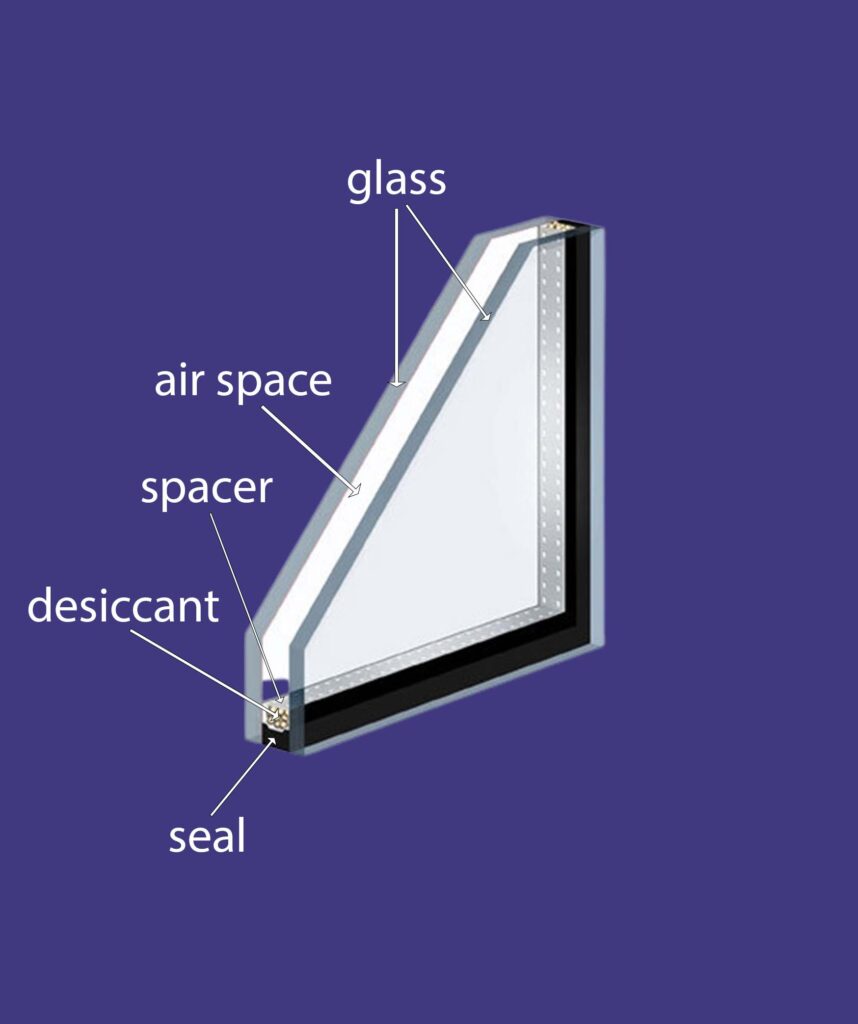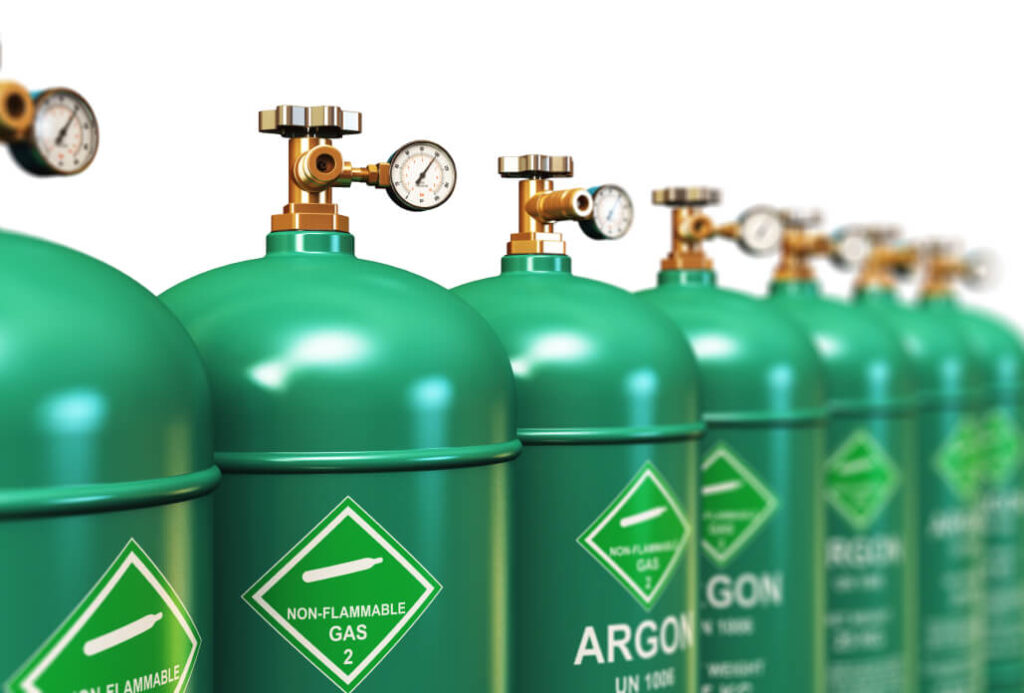
The short answer is no unless you have meant vacuum double glazing which indeed vacuums insulated.
There is no vacuum in regular double glazing used in modern UPVC or wooden double-glazed windows.
Regular double glazing is made up of two panes of glass, separated by a spacer.
The spacer is filled with air or gas such as argon or krypton, which acts as an insulator to keep heat from escaping through the windows.
Unlike regular double glazing, vacuum double glazing is more efficient because a vacuum transmits less heat than air or gas.
While there is no regular vacuum in double glazing, the airtight seal created by the spacer does make it an effective barrier against heat loss.
In fact, double glazing can reduce heat loss by up to 50% compared to single-pane windows.

If you have single-glazed windows on your property and you’re interested in reducing your energy costs and making your home more comfortable.
Double glazing is definitely worth considering, but do not rush to replace windows entirely as it is possible to retrofit new slim double glazing into your existing wooden window frames, even if your windows are old and look weak.

Why double glazing is filled with gases?
The gases used in double glazing (argon, krypton and xenon) are chosen because they are very good at stopping heat from passing through them.
They are also inert, meaning they won’t react with the glass or other materials in the window. This makes them safe and stable for long-term use.

The most common gas used in double-glazing is argon. It’s inexpensive and does a good job of insulating against heat loss. Krypton and xenon are more expensive, but they’re even better at preventing heat transfer.
So, if you’re looking for the most energy-efficient windows possible, you may want to consider using windows with these gases.
However, keep in mind that the costs associated with these windows can be significantly higher than regular double-glazed windows.
Double glazing is an effective way to reduce heat loss in your home and make it more comfortable.
The gases used in double glazing help to insulate against heat transfer, making the windows more energy-efficient. While the initial cost of these windows may be higher than regular double-glazed windows, they can save you money in the long run by reducing your energy bills.
Is vacuum double glazing better than regular double glazing?
Yes, vacuum double glazing is more efficient than regular double glazing because a vacuum transmits less heat than air or gas. The initial cost of these windows may be higher than regular double-glazed windows, but they can save you money in the long run by reducing your energy bills.
Vacuum double glazing also has a longer service life compared to regular double glazing filled with air or double glazing filled with gas.
Vacuum double-glazing units are remarkably thin, with the typical thickness ranging from only 6.5 to 10.3 mm. This makes them the thinnest double-glazing option available, ideal for insulating the old single-glazed sash windows found in UK heritage buildings.
Read more articles

How to make old wood windows energy efficient
How to make old wood windows energy efficient
Safety glass regulations, UK
Safety glass regulations, UK
Thoughts on Double-glazing Alternatives
Thoughts on Double-glazing Alternatives